Latest Sheet Music
Schumann

Robert Schumann, sometimes given as Robert Alexander Schumann, (June 8, 1810 – July 29, 1856) was a German composer, aesthete and influential music critic. He is one of the most famous Romantic composers of the 19th century.
He had hoped to pursue a career as a virtuoso pianist, having been assured by his teacher Friedrich Wieck that he could become the finest pianist in Europe after only a few years of study with him. However, a hand injury prevented those hopes from being realized, and he decided to focus his musical energies on composition. Schumann's published compositions were, until 1840, all for the piano; he later composed works for piano and orchestra, many lieder (songs for voice and piano), four symphonies, an opera, and other orchestral, choral and chamber works. His writings about music appeared mostly in the Neue Zeitschrift für Musik ("The New Journal for Music"), a Leipzig-based publication that he jointly founded.
In 1840, after a long and acrimonious legal battle with his piano instructor Friedrich Wieck, Schumann married Wieck's daughter, pianist Clara Wieck, a considerable figure of the Romantic period in her own right. Clara Wieck showcased many works by her husband as well. For the last two years of his life, after an attempted suicide, Schumann was confined to a mental institution.
He had hoped to pursue a career as a virtuoso pianist, having been assured by his teacher Friedrich Wieck that he could become the finest pianist in Europe after only a few years of study with him. However, a hand injury prevented those hopes from being realized, and he decided to focus his musical energies on composition. Schumann's published compositions were, until 1840, all for the piano; he later composed works for piano and orchestra, many lieder (songs for voice and piano), four symphonies, an opera, and other orchestral, choral and chamber works. His writings about music appeared mostly in the Neue Zeitschrift für Musik ("The New Journal for Music"), a Leipzig-based publication that he jointly founded.
In 1840, after a long and acrimonious legal battle with his piano instructor Friedrich Wieck, Schumann married Wieck's daughter, pianist Clara Wieck, a considerable figure of the Romantic period in her own right. Clara Wieck showcased many works by her husband as well. For the last two years of his life, after an attempted suicide, Schumann was confined to a mental institution.
Haydn

Franz Joseph Haydn (March 31, 1732 – May 31, 1809) was one of the most prominent composers of the classical period, and is called by some the "Father of the Symphony" and "Father of the String Quartet".
A life-long resident of Austria, Haydn spent most of his career as a court musician for the wealthy Hungarian Esterházy family on their remote estate. Isolated from other composers and trends in music until the later part of his long life, he was, as he put it, "forced to become original".
Although Haydn is still often called "Franz Joseph Haydn", the composer did not use the name "Franz" during his lifetime and this misnomer is avoided by modern scholars and historians. Joseph Haydn was the brother of Michael Haydn, himself a highly regarded composer, and Johann Evangelist Haydn, a tenor.
A central characteristic of Haydn's music is the development of larger structures out of very short, simple musical motifs, often derived from standard accompanying figures. The music is often quite formally concentrated, and the important musical events of a movement can unfold rather quickly.
Haydn's work was central to the development of what came to be called sonata form. His practice, however, differed in some ways from that of Mozart and Beethoven, his younger contemporaries who likewise excelled in this form of composition. Haydn was particularly fond of the so-called "monothematic exposition", in which the music that establishes the dominant key is similar or identical to the opening theme. Haydn also differs from Mozart and Beethoven in his recapitulation sections, where he often rearranges the order of themes compared to the exposition and uses extensive thematic development.
Perhaps more than any other composer's, Haydn's music is known for its humour. The most famous example is the sudden loud chord in the slow movement of his "Surprise" symphony; Haydn's many other musical jokes include numerous false endings (e.g., in the quartets Op. 33 No. 2 and Op. 50 No. 3), and the remarkable rhythmic illusion placed in the trio section of the third movement of Op. 50 No. 1.
A life-long resident of Austria, Haydn spent most of his career as a court musician for the wealthy Hungarian Esterházy family on their remote estate. Isolated from other composers and trends in music until the later part of his long life, he was, as he put it, "forced to become original".
Although Haydn is still often called "Franz Joseph Haydn", the composer did not use the name "Franz" during his lifetime and this misnomer is avoided by modern scholars and historians. Joseph Haydn was the brother of Michael Haydn, himself a highly regarded composer, and Johann Evangelist Haydn, a tenor.
A central characteristic of Haydn's music is the development of larger structures out of very short, simple musical motifs, often derived from standard accompanying figures. The music is often quite formally concentrated, and the important musical events of a movement can unfold rather quickly.
Haydn's work was central to the development of what came to be called sonata form. His practice, however, differed in some ways from that of Mozart and Beethoven, his younger contemporaries who likewise excelled in this form of composition. Haydn was particularly fond of the so-called "monothematic exposition", in which the music that establishes the dominant key is similar or identical to the opening theme. Haydn also differs from Mozart and Beethoven in his recapitulation sections, where he often rearranges the order of themes compared to the exposition and uses extensive thematic development.
Perhaps more than any other composer's, Haydn's music is known for its humour. The most famous example is the sudden loud chord in the slow movement of his "Surprise" symphony; Haydn's many other musical jokes include numerous false endings (e.g., in the quartets Op. 33 No. 2 and Op. 50 No. 3), and the remarkable rhythmic illusion placed in the trio section of the third movement of Op. 50 No. 1.
Bach, J.S.
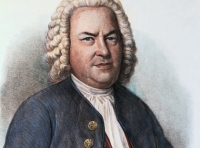
Johann Sebastian Bach (31 March 1685 – 28 July 1750) was a German composer and musician of the Baroque period. He is known for instrumental compositions such as the Art of Fugue, the Brandenburg Concertos, and the Goldberg Variations, and for vocal music such as the St Matthew Passion and the Mass in B minor. Since the 19th-century Bach Revival he has been generally regarded as one of the greatest composers of the Western art musical canon.
The Bach family already counted several composers when Johann Sebastian was born as the last child of a city musician in Eisenach. After being orphaned at age 10, he lived for five years with his eldest brother Johann Christoph Bach, after which he continued his musical development in Lüneburg. From 1703 he was back in Thuringia, working as a musician for Protestant churches in Arnstadt and Mühlhausen and, for longer stretches of time, at courts in Weimar, where he expanded his organ repertory, and Köthen, where he was mostly engaged with chamber music. From 1723 he was employed as Thomaskantor (cantor at St. Thomas) in Leipzig. He composed music for the principal Lutheran churches of the city, and for its university's student ensemble Collegium Musicum. From 1726 he published some of his keyboard music. In Leipzig, as had happened during some of his earlier positions, he had difficult relations with his employer, a situation that was little remedied when he was granted the title of court composer by his sovereign, Augustus, Elector of Saxony and King of Poland, in 1736. In the last decades of his life he reworked and extended many of his earlier compositions. He died of complications after eye surgery in 1750 at the age of 65.
The Bach family already counted several composers when Johann Sebastian was born as the last child of a city musician in Eisenach. After being orphaned at age 10, he lived for five years with his eldest brother Johann Christoph Bach, after which he continued his musical development in Lüneburg. From 1703 he was back in Thuringia, working as a musician for Protestant churches in Arnstadt and Mühlhausen and, for longer stretches of time, at courts in Weimar, where he expanded his organ repertory, and Köthen, where he was mostly engaged with chamber music. From 1723 he was employed as Thomaskantor (cantor at St. Thomas) in Leipzig. He composed music for the principal Lutheran churches of the city, and for its university's student ensemble Collegium Musicum. From 1726 he published some of his keyboard music. In Leipzig, as had happened during some of his earlier positions, he had difficult relations with his employer, a situation that was little remedied when he was granted the title of court composer by his sovereign, Augustus, Elector of Saxony and King of Poland, in 1736. In the last decades of his life he reworked and extended many of his earlier compositions. He died of complications after eye surgery in 1750 at the age of 65.
James Scott
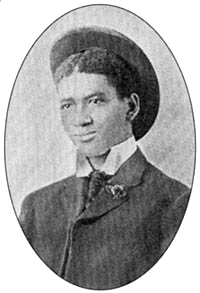
James Sylvester Scott (February 12, 1885 – August 30, 1938) was an African-American ragtime composer, regarded as one of the three most important composers of classic ragtime, along with Scott Joplin and Joseph Lamb.
He was born in Neosho, Missouri to James Scott Sr. and Molly Thomas Scott, both former slaves. In 1901 his family moved to Carthage, Missouri, where he attended Lincoln High School. In 1902 he began working at the music store of Charles L. Dumars, first at menial labor, but before long demonstrating music at the piano, including his own pieces. Demand for his music convinced Dumars to print the first of Scott's published compositions, "A Summer Breeze", in 1903.
In 1906 he moved to St. Louis, Missouri, where Scott Joplin introduced him to publisher John Stillwell Stark. The first Scott rag that Stark published, 'Frog Legs Rag', became a hit, and Scott became a regular contributor to the Stark catalogue. In 1914 Scott moved to Kansas City, Missouri, where he married Nora Johnson, taught music, and accompanied silent movies.
He was born in Neosho, Missouri to James Scott Sr. and Molly Thomas Scott, both former slaves. In 1901 his family moved to Carthage, Missouri, where he attended Lincoln High School. In 1902 he began working at the music store of Charles L. Dumars, first at menial labor, but before long demonstrating music at the piano, including his own pieces. Demand for his music convinced Dumars to print the first of Scott's published compositions, "A Summer Breeze", in 1903.
In 1906 he moved to St. Louis, Missouri, where Scott Joplin introduced him to publisher John Stillwell Stark. The first Scott rag that Stark published, 'Frog Legs Rag', became a hit, and Scott became a regular contributor to the Stark catalogue. In 1914 Scott moved to Kansas City, Missouri, where he married Nora Johnson, taught music, and accompanied silent movies.
Offenbach

Jacques Offenbach (20 June 1819 – 5 October 1880) was a Prussian-born French composer, cellist and impresario. He is remembered for his nearly 100 operettas of the 1850s–1870s and his uncompleted opera The Tales of Hoffmann. He was a powerful influence on later composers of the operetta genre, particularly Johann Strauss, Jr. and Arthur Sullivan. His best-known works were continually revived during the 20th century, and many of his operettas continue to be staged in the 21st. The Tales of Hoffman remains part of the standard opera repertory.
Tchaikovsky

Pyotr Il'yich Tchaikovsky (May 7 1840 â November 6 1893) was a Russian composer of the Romantic era. While not part of the nationalistic music group known as "The Five", Tchaikovsky wrote music which, in the opinion of Harold Schonberg, was distinctly Russian: plangent, introspective, with modally-inflected melody and harmony.
Aesthetically, Tchaikovsky remained open to all aspects of Saint Petersburg musical life. He was impressed by Serov and Balakirev as well as the classical values upheld by the conservatory. Both the progressive and conservative camps in Russian music at the time attempted to win him over. Tchaikovsky charted his compositional course between these two factions, retaining his individuality as a composer as well as his Russian identity. In this he was influenced by the ideals of his teacher Nikolai Rubinstein and Nikolai's brother Anton.
Tchaikovsky's musical cosmopolitanism led him to be favored by many Russian music-lovers over the "Russian" harmonies and styles of Mussorgsky, Borodin and Rimsky-Korsakov.
Nonetheless he frequently adapted Russian traditional melodies and dance forms in his music, which enhanced his success in his home country. The success in St. Petersburg at the premiere of his Third Orchestral Suite may have been due in large part to his concluding the work with a polonaise. He also used a polonaise for the final movement of his Third Symphony.
Aesthetically, Tchaikovsky remained open to all aspects of Saint Petersburg musical life. He was impressed by Serov and Balakirev as well as the classical values upheld by the conservatory. Both the progressive and conservative camps in Russian music at the time attempted to win him over. Tchaikovsky charted his compositional course between these two factions, retaining his individuality as a composer as well as his Russian identity. In this he was influenced by the ideals of his teacher Nikolai Rubinstein and Nikolai's brother Anton.
Tchaikovsky's musical cosmopolitanism led him to be favored by many Russian music-lovers over the "Russian" harmonies and styles of Mussorgsky, Borodin and Rimsky-Korsakov.
Nonetheless he frequently adapted Russian traditional melodies and dance forms in his music, which enhanced his success in his home country. The success in St. Petersburg at the premiere of his Third Orchestral Suite may have been due in large part to his concluding the work with a polonaise. He also used a polonaise for the final movement of his Third Symphony.
Clifton Williams
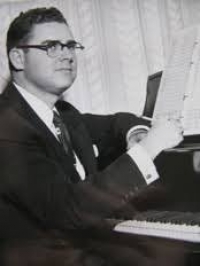
Clifton Williams, Jr. was an American composer, pianist, French hornist, mellophonist, music theorist, conductor, and teacher. Williams was known by symphony patrons as a virtuoso French hornist with the symphony orchestras of Baton Rouge, New Orleans, Houston, Oklahoma City, Austin, and San Antonio.
Pamela Wedgwood
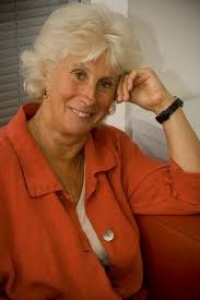
Born in 1947, Pam’s musical career began with the recorder and piano, and Tenor Horn and Euphonium through the brass band tradition at her school. She then took up the Cello and French Horn, entering Trinity College of Music in London to study Piano, Horn, Cello and composition at the age of sixteen.
Dresden Dolls
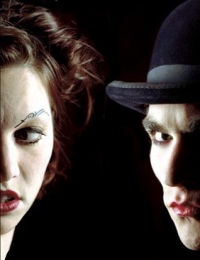
The Dresden Dolls are an American musical duo from Boston, Massachusetts. Formed in 2001, the group consists of Amanda Palmer (vocals, piano, harmonica, ukelele) and Brian Viglione (drums, percussion, guitar, vocals). The two describe their style as "Brechtian punk cabaret", a phrase invented by Palmer because she was "terrified" that the press would invent a name that "would involve the word gothic." The Dresden Dolls are part of an underground dark cabaret movement that started gaining momentum in the early 1990s.
Rachmaninoff

Sergei Vasilievich Rachmaninoff (1 April 1873 - 28 March 1943) was a Russian composer, pianist, and conductor. He was one of the finest pianists of his day and, as a composer, the last great representative of Russian late Romanticism in classical music. Early influences of Tchaikovsky, Rimsky-Korsakov and other Russian composers gave way to a thoroughly personal idiom which included a pronounced lyricism, expressive breadth, structural ingenuity and a tonal palette of rich, distinctive orchestral colors.
Understandably, the piano figures prominently in Rachmaninoff's compositional output, either as a solo instrument or as part of an ensemble. He made it a point, however, to use his own skills as a performer to explore fully the expressive possibilities of the instrument. Even in his earliest works, he revealed a sure grasp of idiomatic piano writing and a striking gift for melody. In some of his early orchestral pieces he showed the first signs of a talent for tone painting, which he would perfect in The Isle of the Dead, and he began to show a similar penchant for vocal writing in two early sets of songs, Opp. 4 and 8. Rachmaninoff's masterpiece, however, is his choral symphony The Bells, in which all of his talents are fused and unified.
Rachmaninoff sometimes felt threatened by the success of modernists such as Scriabin and Prokofiev and wondered whether to cease composing even before he left Russia. His musical philosophy was rooted in the Russian spiritual tradition, where the role of the artist was to create beauty and to speak the truth from the depths of his heart. In his last major interview, in 1941, he admitted his music, like Russian music, was a product of his temperament. He said, on another occasion, "The new kind of music seems to create not from the heart but from the head. Its composers think rather than feel. They have not the capacity to make their works exalt—they meditate, protest, analyze, reason, calculate and brood, but they do not exalt."
Understandably, the piano figures prominently in Rachmaninoff's compositional output, either as a solo instrument or as part of an ensemble. He made it a point, however, to use his own skills as a performer to explore fully the expressive possibilities of the instrument. Even in his earliest works, he revealed a sure grasp of idiomatic piano writing and a striking gift for melody. In some of his early orchestral pieces he showed the first signs of a talent for tone painting, which he would perfect in The Isle of the Dead, and he began to show a similar penchant for vocal writing in two early sets of songs, Opp. 4 and 8. Rachmaninoff's masterpiece, however, is his choral symphony The Bells, in which all of his talents are fused and unified.
Rachmaninoff sometimes felt threatened by the success of modernists such as Scriabin and Prokofiev and wondered whether to cease composing even before he left Russia. His musical philosophy was rooted in the Russian spiritual tradition, where the role of the artist was to create beauty and to speak the truth from the depths of his heart. In his last major interview, in 1941, he admitted his music, like Russian music, was a product of his temperament. He said, on another occasion, "The new kind of music seems to create not from the heart but from the head. Its composers think rather than feel. They have not the capacity to make their works exalt—they meditate, protest, analyze, reason, calculate and brood, but they do not exalt."
Chopin

Frédéric Chopin (1 March 1810 – 17 October 1849) was a Polish composer and virtuoso pianist of the Romantic period. He is widely regarded as the greatest Polish composer, and ranks as one of music's greatest tone poets.
He was born in the village of Żelazowa Wola, in the Duchy of Warsaw, to a Polish mother and French-expatriate father, and in his early life was regarded as a child-prodigy pianist. In November 1830, at the age of 20, Chopin went abroad; following the suppression of the Polish November Uprising of 1830–31, he became one of many expatriates of the Polish "Great Emigration."
In Paris, he made a comfortable living as a composer and piano teacher, while giving few public performances. A Polish patriot,
Chopin's extant compositions were written primarily for the piano as a solo instrument. Though technically demanding, Chopin's style emphasizes nuance and expressive depth rather than virtuosity. Chopin invented musical forms such as the ballade and was responsible for major innovations in forms such as the piano sonata, waltz, nocturne, étude, impromptu and prelude. His works are mainstays of Romanticism in 19th-century classical music.
He was born in the village of Żelazowa Wola, in the Duchy of Warsaw, to a Polish mother and French-expatriate father, and in his early life was regarded as a child-prodigy pianist. In November 1830, at the age of 20, Chopin went abroad; following the suppression of the Polish November Uprising of 1830–31, he became one of many expatriates of the Polish "Great Emigration."
In Paris, he made a comfortable living as a composer and piano teacher, while giving few public performances. A Polish patriot,
Chopin's extant compositions were written primarily for the piano as a solo instrument. Though technically demanding, Chopin's style emphasizes nuance and expressive depth rather than virtuosity. Chopin invented musical forms such as the ballade and was responsible for major innovations in forms such as the piano sonata, waltz, nocturne, étude, impromptu and prelude. His works are mainstays of Romanticism in 19th-century classical music.
Sergey Rahmaninov
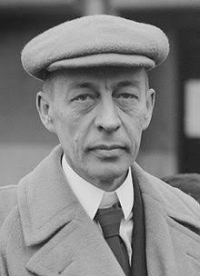
Sergei Vasilievich Rachmaninoff, Russian composer, conductor, pianist. He is one of the greatest pianists and composers of the 20th century. He was the last great composer of Russian romanticism. After the October Revolution in his country, he settled in the USA and became a US citizen
Koji Kondo

Koji Kondo (近藤浩治 Kondō Kōji?, born August 13, 1960) is a Japanese video game composer and sound director who has been employed at Nintendo since 1984. He is best known for scoring numerous titles in the Mario and The Legend of Zelda series.
Metallica

Metallica is an American heavy metal band that formed in 1981 in Los Angeles, California. Founded when drummer Lars Ulrich posted an advertisement in a Los Angeles newspaper, Metallica's original line-up consisted of Ulrich, rhythm guitarist and vocalist James Hetfield, lead guitarist Dave Mustaine, and bassist Ron McGovney. These last two were later replaced from the band, in favor of Kirk Hammett and Cliff Burton, respectively. In September 1986, Metallica's tour bus skidded out of control and flipped, which resulted in Burton being crushed under the bus and killed. Jason Newsted replaced him less than two months later. Newsted left the band in 2001 and was replaced by Robert Trujillo in 2003.
Metallica's early releases included fast tempos, instrumentals, and aggressive musicianship that placed them as one of the "Big Four" of the thrash metal subgenre alongside Slayer, Megadeth and Anthrax. The band earned a growing fan base in the underground music community, and some critics say the 1986 release Master of Puppets is one of the most influential and "heavy" thrash metal albums. The band achieved substantial commercial success with its self-titled 1991 album, which debuted at number one on the Billboard 200. Some critics and fans believed the band changed its musical direction to appeal to the mainstream audience. With the release of Load in 1996, Metallica distanced itself from earlier releases in what has been described as "an almost alternative rock approach", and the band faced accusations of "selling out".
In 2000, Metallica was among several artists who filed a lawsuit against Napster for sharing the band's copyright-protected material for free without the band members' consent. A settlement was reached, and Napster became a pay-to-use service. Despite reaching number one on the Billboard 200, the release of St. Anger in 2003 disappointed some critics and fans with the exclusion of guitar solos, and the "steel-sounding" snare drum. A film titled Some Kind of Monster documented the recording process of St. Anger.
Metallica's early releases included fast tempos, instrumentals, and aggressive musicianship that placed them as one of the "Big Four" of the thrash metal subgenre alongside Slayer, Megadeth and Anthrax. The band earned a growing fan base in the underground music community, and some critics say the 1986 release Master of Puppets is one of the most influential and "heavy" thrash metal albums. The band achieved substantial commercial success with its self-titled 1991 album, which debuted at number one on the Billboard 200. Some critics and fans believed the band changed its musical direction to appeal to the mainstream audience. With the release of Load in 1996, Metallica distanced itself from earlier releases in what has been described as "an almost alternative rock approach", and the band faced accusations of "selling out".
In 2000, Metallica was among several artists who filed a lawsuit against Napster for sharing the band's copyright-protected material for free without the band members' consent. A settlement was reached, and Napster became a pay-to-use service. Despite reaching number one on the Billboard 200, the release of St. Anger in 2003 disappointed some critics and fans with the exclusion of guitar solos, and the "steel-sounding" snare drum. A film titled Some Kind of Monster documented the recording process of St. Anger.
Ravel

Joseph-Maurice Ravel (March 7, 1875 – December 28, 1937) was a French composer of Impressionist music known especially for his melodies, orchestral and instrumental textures and effects. Much of his piano music, chamber music, vocal music and orchestral music has entered the standard concert repertoire.
Ravel's piano compositions, such as Jeux d'eau, Miroirs and Gaspard de la Nuit, demand considerable virtuosity from the performer, and his orchestral music, including Daphnis et Chloé and his arrangement of Modest Mussorgsky's Pictures at an Exhibition, uses a variety of sound and instrumentation very effectively.
Ravel is perhaps known best for his orchestral work, Boléro (1928), which he considered trivial and once described as "a piece for orchestra without music."
According to SACEM, Ravel's estate earns more royalties than that of any other French musician. According to international copyright law, Ravel's works are public domain since January 1, 2008 in most countries. In France, due to anomalous copyright law extensions to account for the two world wars, they will not enter the public domain until 2015.
Ravel's piano compositions, such as Jeux d'eau, Miroirs and Gaspard de la Nuit, demand considerable virtuosity from the performer, and his orchestral music, including Daphnis et Chloé and his arrangement of Modest Mussorgsky's Pictures at an Exhibition, uses a variety of sound and instrumentation very effectively.
Ravel is perhaps known best for his orchestral work, Boléro (1928), which he considered trivial and once described as "a piece for orchestra without music."
According to SACEM, Ravel's estate earns more royalties than that of any other French musician. According to international copyright law, Ravel's works are public domain since January 1, 2008 in most countries. In France, due to anomalous copyright law extensions to account for the two world wars, they will not enter the public domain until 2015.
Jane Eyre
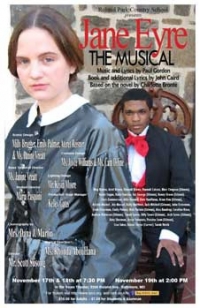
Jane Eyre is a musical drama with music by composer-lyricist Paul Gordon and a book by John Caird, based on the novel by Charlotte Brontë.
The premiere of the musical took place in Wichita, Kansas in the autumn of 1995. Minor roles and the large ensemble of schoolgirls for the scenes at Brocklehurst's school were cast locally, while the directors brought several members of the principal cast from New York. The musical was well received, and a recording of this rendition allowed the creative team and their backers to slowly move the project towards an opening on Broadway.
The musical debuted at the Brooks Atkinson Theatre on November 9, 2000, with an official opening on December 10, 2000. It enjoyed 36 previews and 209 regular performances before closing on June 10, 2001. Marla Schaffel, who played the title character, won a Drama Desk Award for her performance. The production was directed by John Caird and Scott Schwartz, with choreography by Jayne Paterson.
A revised version is currently in the works, with an expected regional debut in the 2008 or 2009 season.
The premiere of the musical took place in Wichita, Kansas in the autumn of 1995. Minor roles and the large ensemble of schoolgirls for the scenes at Brocklehurst's school were cast locally, while the directors brought several members of the principal cast from New York. The musical was well received, and a recording of this rendition allowed the creative team and their backers to slowly move the project towards an opening on Broadway.
The musical debuted at the Brooks Atkinson Theatre on November 9, 2000, with an official opening on December 10, 2000. It enjoyed 36 previews and 209 regular performances before closing on June 10, 2001. Marla Schaffel, who played the title character, won a Drama Desk Award for her performance. The production was directed by John Caird and Scott Schwartz, with choreography by Jayne Paterson.
A revised version is currently in the works, with an expected regional debut in the 2008 or 2009 season.
Josh Groban
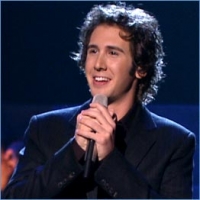
Joshua Winslow Groban (born February 27, 1981) is a Grammy-nominated American singer-songwriter. He has concentrated his career so far mostly in concert singing and recordings, although he has stated that he wishes to pursue musical theater in the future.
Various music critics have described Groban's voice in different ways, with some referring to him as a tenor and others as a baritone. In performance, Groban's music goes as low as G2 (as in the song "To Where You Are") and extends up to at least B4 flat or the B flat above middle C (as heard in "You Raise Me Up"). He also hits a High B during the Baywatch theme song in his Emmy performance of TV Theme Songs on September 21, 2008.This places his voice lower than the tenor range on the low end, and just short of Tenor C, and therefore above the baritone range, on the high end.
Some of Groban's musical influences have been Radiohead, Paul Simon, Sting, Peter Gabriel, and Björk. He says he is able to look up to anyone, musically, who has pushed the boundaries and stepped outside of the box. As for vocal influences, "anyone who told a story with their songs," including Mandy Patinkin, Klaus Nomi, George Hearn, and Luciano Pavarotti.
Various music critics have described Groban's voice in different ways, with some referring to him as a tenor and others as a baritone. In performance, Groban's music goes as low as G2 (as in the song "To Where You Are") and extends up to at least B4 flat or the B flat above middle C (as heard in "You Raise Me Up"). He also hits a High B during the Baywatch theme song in his Emmy performance of TV Theme Songs on September 21, 2008.This places his voice lower than the tenor range on the low end, and just short of Tenor C, and therefore above the baritone range, on the high end.
Some of Groban's musical influences have been Radiohead, Paul Simon, Sting, Peter Gabriel, and Björk. He says he is able to look up to anyone, musically, who has pushed the boundaries and stepped outside of the box. As for vocal influences, "anyone who told a story with their songs," including Mandy Patinkin, Klaus Nomi, George Hearn, and Luciano Pavarotti.
Coldplay

Coldplay are a rock band formed in London, England in 1997. The group comprises vocalist/pianist/guitarist Chris Martin, lead guitarist Jonny Buckland, bassist Guy Berryman, and drummer/multi-instrumentalist Will Champion. Coldplay have sold 34.6 million albums, and are also known for their hit singles, such as "Yellow", "The Scientist", "Speed of Sound", "Fix You", "Viva la Vida" and the Grammy Award-winning "Clocks".
Coldplay achieved worldwide fame with the release of their single "Yellow", followed by their debut album, Parachutes (2000), which was nominated for the Mercury Prize. Its follow-up, A Rush of Blood to the Head (2002) won multiple awards such as NME's Album of the Year and was later included on Rolling Stone magazine's 500 Greatest Albums of All Time list, ranking at #473. Their next release, X&Y (2005), received a slightly less enthusiastic yet still generally positive reception. The band's fourth studio album, Viva la Vida or Death and All His Friends (2008), was produced by Brian Eno and released again to largely favourable reviews. All of Coldplay's albums have enjoyed great commercial success.
Coldplay's early material was compared to acts such as Jeff Buckley, U2, and Travis. Coldplay have been an active supporter of various social and political causes, such as Oxfam's Make Trade Fair campaign and Amnesty International. The group have also performed at various charity projects such as Band Aid 20, Live 8, and the Teenage Cancer Trust.
Coldplay achieved worldwide fame with the release of their single "Yellow", followed by their debut album, Parachutes (2000), which was nominated for the Mercury Prize. Its follow-up, A Rush of Blood to the Head (2002) won multiple awards such as NME's Album of the Year and was later included on Rolling Stone magazine's 500 Greatest Albums of All Time list, ranking at #473. Their next release, X&Y (2005), received a slightly less enthusiastic yet still generally positive reception. The band's fourth studio album, Viva la Vida or Death and All His Friends (2008), was produced by Brian Eno and released again to largely favourable reviews. All of Coldplay's albums have enjoyed great commercial success.
Coldplay's early material was compared to acts such as Jeff Buckley, U2, and Travis. Coldplay have been an active supporter of various social and political causes, such as Oxfam's Make Trade Fair campaign and Amnesty International. The group have also performed at various charity projects such as Band Aid 20, Live 8, and the Teenage Cancer Trust.
Debussy

Achille-Claude Debussy (August 22, 1862 – March 25, 1918) was a French composer. Along with Maurice Ravel, he is considered one of the most prominent figures working within the field of Impressionist music, though he himself intensely disliked the term when applied to his compositions. Debussy was not only among the most important of all French composers but also was a central figure in all European music at the turn of the twentieth century.
Debussy's music virtually defines the transition from late-Romantic music to twentieth century modernist music. In French literary circles, the style of this period was known as Symbolism, a movement that directly inspired Debussy both as a composer and as an active cultural participant.
Debussy's music virtually defines the transition from late-Romantic music to twentieth century modernist music. In French literary circles, the style of this period was known as Symbolism, a movement that directly inspired Debussy both as a composer and as an active cultural participant.
Seal
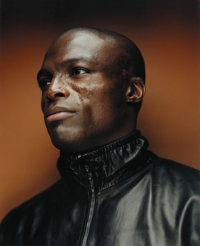
Seal Henry Olusegun Olumide Adelo Samuel (born February 19, 1963 in Paddington, London) is a British soul singer and songwriter. His name Olusegun means "God is victorious". Known professionally by his first name, Seal is known for his numerous international hits and his marriage to supermodel Heidi Klum.
Seal first came to public attention as vocalist on the Adamski single "Killer" in 1990. The single eventually reached number one in 1990 in the UK. Seal subsequently signed to ZTT Records and released his debut album (produced by Trevor Horn), self-titled Seal, in 1991. Two versions of the album are known to be in circulation: the original "premix" version and a second, more common version with an updated mix. This is attributed to the demand for a produced single rushing the final album edit, and as Seal puts it, his and producer Horn's "inability to let go."
System was released in the UK on November 12, 2007 and in the U.S. on November 13, 2007. Seal describes the album as more dance-oriented, apparently a return to the roots of his first album. On the track titled "Wedding Day", Seal sings a duet with his wife, Heidi Klum. The album's first single, "Amazing", was released on September 25, 2007, and was nominated for the "Best Male Pop Vocal Performance" Grammy at the 2007 50th Annual Grammy Awards.
Seal first came to public attention as vocalist on the Adamski single "Killer" in 1990. The single eventually reached number one in 1990 in the UK. Seal subsequently signed to ZTT Records and released his debut album (produced by Trevor Horn), self-titled Seal, in 1991. Two versions of the album are known to be in circulation: the original "premix" version and a second, more common version with an updated mix. This is attributed to the demand for a produced single rushing the final album edit, and as Seal puts it, his and producer Horn's "inability to let go."
System was released in the UK on November 12, 2007 and in the U.S. on November 13, 2007. Seal describes the album as more dance-oriented, apparently a return to the roots of his first album. On the track titled "Wedding Day", Seal sings a duet with his wife, Heidi Klum. The album's first single, "Amazing", was released on September 25, 2007, and was nominated for the "Best Male Pop Vocal Performance" Grammy at the 2007 50th Annual Grammy Awards.
Sheryl Crow

Sheryl Suzanne Crow (born February 11, 1962) is an American singer-songwriter and musician. Her music blends rock, country, pop, folk and blues, into one mainstream sound, and she has won nine Grammy Awards. Crow is also a political activist.
She has performed with the Rolling Stones and has sung duets with Mick Jagger, Michael Jackson and Kid Rock, among others. Crow's recordings have appeared on the soundtracks to Cars, Erin Brockovich, Home of the Brave, and Tomorrow Never Dies, among many others.
She has performed with the Rolling Stones and has sung duets with Mick Jagger, Michael Jackson and Kid Rock, among others. Crow's recordings have appeared on the soundtracks to Cars, Erin Brockovich, Home of the Brave, and Tomorrow Never Dies, among many others.
Moritz Moszkowski
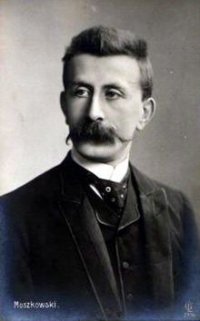
Moritz (Maurice) Moszkowski (23 August 1854 – 4 March 1925) was a German composer, pianist, and teacher of Polish descent. Ignacy Paderewski said, "After Chopin, Moszkowski best understands how to write for the piano". Although little known today, Moszkowski was well-respected and popular during the late nineteenth century.
His music is brilliant, but has also been described as "devoid of the masculine and the feminine". He wrote over two hundred small-scale piano pieces, which brought him much popularity – notably his set of Spanish Dances, Op. 12, for piano duet (later arranged for solo piano, and for orchestra ). His early Serenade, Op. 15, was world-famous and appeared in many guises, including the song Liebe, kleine Nachtigall. Today he is probably best known for his fifteen Études de Virtuosité, Op. 72, which have been performed by virtuoso pianists such as Vladimir Horowitz and Marc-André Hamelin. Surprisingly, their first complete recording was not until 1970 (by Ilana Vered). Many of his small but brilliant piano pieces, such as Étincelles (Sparks), are used as encore performances at the end of classical concerts.
He also wrote larger scale works including the Piano Concerto in E major, Op. 59 (1898), the Violin Concerto in C major, Op. 30, three orchestral suites (Opp. 39, 47, 79), and a symphonic poem Jeanne d'Arc, Op. 19.
He wrote the opera Boabdil der letzte Maurenkönig, Op. 49, on the historical theme of the capture of Granada. It was premiered at the Berlin Court Opera on 21 April 1892, and appeared in Prague and New York the following year. It did not stay in the repertoire, but its ballet music was very popular for a number of years. He wrote a three-act ballet Laurin in 1896.
His music is brilliant, but has also been described as "devoid of the masculine and the feminine". He wrote over two hundred small-scale piano pieces, which brought him much popularity – notably his set of Spanish Dances, Op. 12, for piano duet (later arranged for solo piano, and for orchestra ). His early Serenade, Op. 15, was world-famous and appeared in many guises, including the song Liebe, kleine Nachtigall. Today he is probably best known for his fifteen Études de Virtuosité, Op. 72, which have been performed by virtuoso pianists such as Vladimir Horowitz and Marc-André Hamelin. Surprisingly, their first complete recording was not until 1970 (by Ilana Vered). Many of his small but brilliant piano pieces, such as Étincelles (Sparks), are used as encore performances at the end of classical concerts.
He also wrote larger scale works including the Piano Concerto in E major, Op. 59 (1898), the Violin Concerto in C major, Op. 30, three orchestral suites (Opp. 39, 47, 79), and a symphonic poem Jeanne d'Arc, Op. 19.
He wrote the opera Boabdil der letzte Maurenkönig, Op. 49, on the historical theme of the capture of Granada. It was premiered at the Berlin Court Opera on 21 April 1892, and appeared in Prague and New York the following year. It did not stay in the repertoire, but its ballet music was very popular for a number of years. He wrote a three-act ballet Laurin in 1896.
Claude Debussy
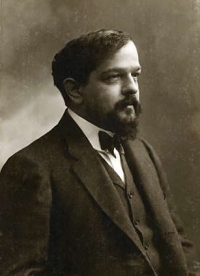
Achille-Claude Debussy (French pronunciation: ) (August 22, 1862 – March 25, 1918) was a French composer. Along with Maurice Ravel, he was one of the most prominent figures working within the field of impressionist music, though he himself intensely disliked the term when applied to his compositions. Debussy is not only among the most important of all French composers but also a central figure in European music at the turn of the twentieth century.
His music is noted for its sensory component and how it is not often formed around one key or pitch. Often Debussy's work reflected the activities or turbulence in his own life. His music virtually defines the transition from late-Romantic music to twentieth century modernist music. In French literary circles, the style of this period was known as symbolism, a movement that directly inspired Debussy both as a composer and as an active cultural participant.
His music is noted for its sensory component and how it is not often formed around one key or pitch. Often Debussy's work reflected the activities or turbulence in his own life. His music virtually defines the transition from late-Romantic music to twentieth century modernist music. In French literary circles, the style of this period was known as symbolism, a movement that directly inspired Debussy both as a composer and as an active cultural participant.
Isaac Albeniz

Isaac Albéniz i Pascual (Spanish pronunciation: ) (May 29, 1860 – May 18, 1909) was a Spanish pianist and composer best known for his piano works based on folk music.
Albéniz’ Suite Española Op.47 is comprised mainly of pieces written in 1886, and grouped together in 1887 in honor of the Queen of Spain. Like many of Albéniz' piano pieces, these works are miniature tone pictures of different geographical regions and musical idioms of Spain. The eight original titles are Granada, Cataluna, Sevilla, Cadiz, Asturias, Aragon, Castilla and Cuba but only the first three titles and Cuba appeared in the original collection. The other pieces were published in later collections, often with different titles. The publisher Hofmeister published all eight titles of Suite Espanola in 1911 after Albéniz’ death, appropriating other pieces for the other four titles so those pieces do not always accurately reflect the geographic designation of the titles, most obviously in the case of Asturias (Leyenda) whose Andalusian flamenco rhythms bear little resemblance to the music of the northern province Asturias. The opus number 47 assigned by Hofmeister has no relation to any chronological order in Albéniz’ oeuvre, in which opus numbers were randomly given by publishers or by Albéniz himself, with some pieces appearing in more than one collection.
Albéniz’ Suite Española Op.47 is comprised mainly of pieces written in 1886, and grouped together in 1887 in honor of the Queen of Spain. Like many of Albéniz' piano pieces, these works are miniature tone pictures of different geographical regions and musical idioms of Spain. The eight original titles are Granada, Cataluna, Sevilla, Cadiz, Asturias, Aragon, Castilla and Cuba but only the first three titles and Cuba appeared in the original collection. The other pieces were published in later collections, often with different titles. The publisher Hofmeister published all eight titles of Suite Espanola in 1911 after Albéniz’ death, appropriating other pieces for the other four titles so those pieces do not always accurately reflect the geographic designation of the titles, most obviously in the case of Asturias (Leyenda) whose Andalusian flamenco rhythms bear little resemblance to the music of the northern province Asturias. The opus number 47 assigned by Hofmeister has no relation to any chronological order in Albéniz’ oeuvre, in which opus numbers were randomly given by publishers or by Albéniz himself, with some pieces appearing in more than one collection.
Handel

George Frideric Handel (Friday, 23 February 1685 - Saturday, 14 April 1759) was a German-born Baroque composer who is famous for his operas, oratorios and concerti grossi. Born as Georg Friedrich Handel in Halle, he spent most of his adult life in England, becoming a subject of the British crown on 22 January 1727. His most famous works are Messiah, an oratorio set to texts from the King James Bible; Water Music; and Music for the Royal Fireworks. Strongly influenced by the techniques of the great composers of the Italian Baroque and the English composer Henry Purcell, his music was known to many significant composers who came after him, including Haydn, Mozart, and Beethoven.
Handel's compositions include 42 operas; 29 oratorios; more than 120 cantatas, trios and duets; numerous arias; chamber music; a large number of ecumenical pieces; odes and serenatas; and sixteen organ concerti. His most famous work, the Messiah oratorio with its "Hallelujah" chorus, is among the most popular works in choral music and has become a centerpiece of the Christmas season. Also popular are the Opus 3 and 6 Concerti Grossi, as well as "The Cuckoo and the Nightingale", in which birds are heard calling during passages played in different keys representing the vocal ranges of two birds. Also notable are his sixteen keyboard suites, especially The Harmonious Blacksmith.
Handel introduced various previously uncommon musical instruments in his works: the viola d'amore and violetta marina (Orlando), the lute (Ode for St. Cecilia's Day), three trombones (Saul), clarinets or small high cornets (Tamerlano), theorbo, French horn (Water Music), lyrichord, double bassoon, viola da gamba, bell chimes, positive organ, and harp (Giulio Cesare, Alexander's Feast).
Handel's compositions include 42 operas; 29 oratorios; more than 120 cantatas, trios and duets; numerous arias; chamber music; a large number of ecumenical pieces; odes and serenatas; and sixteen organ concerti. His most famous work, the Messiah oratorio with its "Hallelujah" chorus, is among the most popular works in choral music and has become a centerpiece of the Christmas season. Also popular are the Opus 3 and 6 Concerti Grossi, as well as "The Cuckoo and the Nightingale", in which birds are heard calling during passages played in different keys representing the vocal ranges of two birds. Also notable are his sixteen keyboard suites, especially The Harmonious Blacksmith.
Handel introduced various previously uncommon musical instruments in his works: the viola d'amore and violetta marina (Orlando), the lute (Ode for St. Cecilia's Day), three trombones (Saul), clarinets or small high cornets (Tamerlano), theorbo, French horn (Water Music), lyrichord, double bassoon, viola da gamba, bell chimes, positive organ, and harp (Giulio Cesare, Alexander's Feast).
The Simpsons
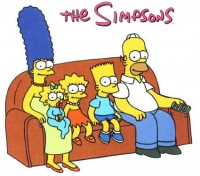
The Simpsons is an American animated sitcom which was created by Matt Groening for the Fox Broadcasting Company. It is a satirical parody of the middle class American lifestyle epitomized by its titular family, which consists of Homer, Marge, Bart, Lisa, and Maggie. The show is set in the fictional town of Springfield, and it lampoons many aspects of the human condition, as well as American culture, society as a whole, and television itself.
The family was conceived by Groening shortly before a pitch for a series of animated shorts with the producer James L. Brooks. Groening created a dysfunctional family and named the characters after members of his own family, substituting Bart for his own name. The shorts became a part of The Tracey Ullman Show on April 19, 1987. After a three-season run, the sketch was developed into a half-hour prime time show and was an early hit for Fox, becoming the first Fox series to land in the Top 30 ratings in a season (1992-1993).
Since its debut on December 17, 1989, the show has broadcast 420 episodes and the twentieth season will commence airing in on September 28, 2008. The Simpsons Movie, a feature-length film, was released in theaters worldwide on July 26 and July 27, 2007, and has grossed approximately US$526.2 million worldwide to date.
The Simpsons has won dozens of awards since it debuted as a series, including 24 Emmy Awards, 26 Annie Awards and a Peabody Award. Time magazine's December 31, 1999 issue named it the 20th century's best television series, and on January 14, 2000 it was awarded a star on the Hollywood Walk of Fame. The Simpsons is the longest-running American sitcom and the longest-running American animated program. Homer's annoyed grunt "D'oh!" has been adopted into the English lexicon, while The Simpsons has influenced many adult-oriented animated sitcoms.
The series' distinctive theme song was composed by musician Danny Elfman in 1989, after Groening approached him requesting a retro style piece. This piece, which took two days to create, has been noted by Elfman as the most popular of his career.
The family was conceived by Groening shortly before a pitch for a series of animated shorts with the producer James L. Brooks. Groening created a dysfunctional family and named the characters after members of his own family, substituting Bart for his own name. The shorts became a part of The Tracey Ullman Show on April 19, 1987. After a three-season run, the sketch was developed into a half-hour prime time show and was an early hit for Fox, becoming the first Fox series to land in the Top 30 ratings in a season (1992-1993).
Since its debut on December 17, 1989, the show has broadcast 420 episodes and the twentieth season will commence airing in on September 28, 2008. The Simpsons Movie, a feature-length film, was released in theaters worldwide on July 26 and July 27, 2007, and has grossed approximately US$526.2 million worldwide to date.
The Simpsons has won dozens of awards since it debuted as a series, including 24 Emmy Awards, 26 Annie Awards and a Peabody Award. Time magazine's December 31, 1999 issue named it the 20th century's best television series, and on January 14, 2000 it was awarded a star on the Hollywood Walk of Fame. The Simpsons is the longest-running American sitcom and the longest-running American animated program. Homer's annoyed grunt "D'oh!" has been adopted into the English lexicon, while The Simpsons has influenced many adult-oriented animated sitcoms.
The series' distinctive theme song was composed by musician Danny Elfman in 1989, after Groening approached him requesting a retro style piece. This piece, which took two days to create, has been noted by Elfman as the most popular of his career.
J. S. Bach
Johann Sebastian Bach (21 March 1685, O.S.31 March 1685, N.S. – 28 July 1750, N.S.) was a German composer, organist, harpsichordist, violist, and violinist whose sacred and secular works for choir, orchestra, and solo instruments drew together the strands of the Baroque period and brought it to its ultimate maturity. Although he did not introduce new forms, he enriched the prevailing German style with a robust contrapuntal technique, an unrivalled control of harmonic and motivic organisation, and the adaptation of rhythms, forms and textures from abroad, particularly from Italy and France.
Revered for their intellectual depth, technical command and artistic beauty, Bach's works include the Brandenburg Concertos, the Goldberg Variations, the Partitas, The Well-Tempered Clavier, the Mass in B minor, the St Matthew Passion, the St John Passion, the Magnificat, A Musical Offering, The Art of Fugue, the English and French Suites, the Sonatas and Partitas for solo violin, the Cello Suites, more than 200 surviving cantatas, and a similar number of organ works, including the famous Toccata and Fugue in D minor and Passacaglia and Fugue in C minor, as well as the Great Eighteen Chorale Preludes and Organ Mass.
Bach's abilities as an organist were highly respected throughout Europe during his lifetime, although he was not widely recognised as a great composer until a revival of interest and performances of his music in the first half of the 19th century. He is now generally regarded as one of the main composers of the Baroque style, and as one of the greatest composers of all time.
Revered for their intellectual depth, technical command and artistic beauty, Bach's works include the Brandenburg Concertos, the Goldberg Variations, the Partitas, The Well-Tempered Clavier, the Mass in B minor, the St Matthew Passion, the St John Passion, the Magnificat, A Musical Offering, The Art of Fugue, the English and French Suites, the Sonatas and Partitas for solo violin, the Cello Suites, more than 200 surviving cantatas, and a similar number of organ works, including the famous Toccata and Fugue in D minor and Passacaglia and Fugue in C minor, as well as the Great Eighteen Chorale Preludes and Organ Mass.
Bach's abilities as an organist were highly respected throughout Europe during his lifetime, although he was not widely recognised as a great composer until a revival of interest and performances of his music in the first half of the 19th century. He is now generally regarded as one of the main composers of the Baroque style, and as one of the greatest composers of all time.
Bach

Johann Sebastian Bach (31 March 1685 – 28 July 1750) was a German composer and organist whose sacred and secular works for choir, orchestra, and solo instruments drew together the strands of the Baroque period and brought it to its ultimate maturity. Although he introduced no new forms, he enriched the prevailing German style with a robust contrapuntal technique, an unrivalled control of harmonic and motivic organisation in composition for diverse musical forces, and the adaptation of rhythms and textures from abroad, particularly Italy and France.
Revered for their intellectual depth and technical and artistic beauty, Bach's works include the Brandenburg concertos; the Goldberg Variations; the English Suites, French Suites, Partitas, and Well-Tempered Clavier; the Mass in B Minor; the St. Matthew Passion; the St. John Passion; The Musical Offering; The Art of Fugue; the Sonatas and Partitas for violin solo; the Cello Suites; more than 200 surviving cantatas; and a similar number of organ works, including the celebrated Toccata and Fugue in D Minor.
While Bach's fame as an organist was great during his lifetime, he was not particularly well-known as a composer. His adherence to Baroque forms and contrapuntal style was considered "old-fashioned" by his contemporaries, especially late in his career when the musical fashion tended towards Rococo and later Classical styles. A revival of interest and performances of his music began early in the 19th century, and he is now widely considered to be one of the greatest composers in the Western tradition.
Revered for their intellectual depth and technical and artistic beauty, Bach's works include the Brandenburg concertos; the Goldberg Variations; the English Suites, French Suites, Partitas, and Well-Tempered Clavier; the Mass in B Minor; the St. Matthew Passion; the St. John Passion; The Musical Offering; The Art of Fugue; the Sonatas and Partitas for violin solo; the Cello Suites; more than 200 surviving cantatas; and a similar number of organ works, including the celebrated Toccata and Fugue in D Minor.
While Bach's fame as an organist was great during his lifetime, he was not particularly well-known as a composer. His adherence to Baroque forms and contrapuntal style was considered "old-fashioned" by his contemporaries, especially late in his career when the musical fashion tended towards Rococo and later Classical styles. A revival of interest and performances of his music began early in the 19th century, and he is now widely considered to be one of the greatest composers in the Western tradition.
Charles Gounod

Charles-François Gounod (/ɡuːˈnoʊ/; French: ; 17 June 1818 – 17 or 18 October 1893) was a French composer, best known for his Ave Maria, based on a work by Bach, as well as his opera Faust. Another opera by Gounod that is still performed today is Roméo et Juliette.
Gounod died at Saint-Cloud in 1893, after a final revision of his twelve operas. His funeral took place ten days later at the Church of the Madeleine, with Camille Saint-Saëns playing the organ and Gabriel Fauré conducting. He was buried at the Cimetière d'Auteuil in Paris.
Gounod died at Saint-Cloud in 1893, after a final revision of his twelve operas. His funeral took place ten days later at the Church of the Madeleine, with Camille Saint-Saëns playing the organ and Gabriel Fauré conducting. He was buried at the Cimetière d'Auteuil in Paris.
Serge Gainsbourg
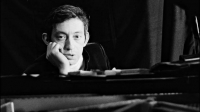
Serge Gainsbourg (French pronunciation: ; born Lucien Ginsburg; 2 April 1928 – 2 March 1991) was a French singer, songwriter, pianist, film composer, poet, painter, screenwriter, writer, actor and director. Regarded as one of the most important figures in French popular music, he was renowned for his often provocative and scandalous releases, as well as his diverse artistic output, which embodied genres ranging from jazz, mambo, world, chanson, pop and yé-yé, to rock and roll, progressive rock, reggae, electronic, disco, new wave and funk. Gainsbourg's varied musical style and individuality make him difficult to categorize, although his legacy has been firmly established and he is often regarded as one of the world's most influential popular musicians.
Roxette
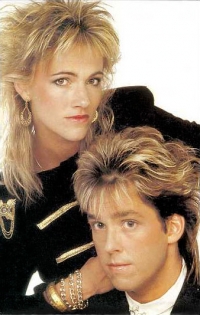
Roxette is a Swedish pop duo, consisting of Marie Fredriksson and Per Gessle.
Although well known as a duo in their native Sweden since the mid 1980s (where the group has had 17 Top 10 hits), the duo achieved worldwide success in the late 1980s. Roxette had four US No. 1 singles, two No. 2 singles. The group has been certified by the Recording Industry Association of America (RIAA) with two platinum albums - 1988's Look Sharp! (released in the U.S. in 1989) and 1991's Joyride, as well as two gold singles - "The Look" and "It Must Have Been Love".
Roxette's success was even bigger in Europe and South America, where their number of Top 10 hits was higher and continued after their decline in the US in 1992. Each of their 7 studio albums as well as their several "Best of" CDs received gold, platinum or multi-platinum status in Europe and Latin-America.
Although well known as a duo in their native Sweden since the mid 1980s (where the group has had 17 Top 10 hits), the duo achieved worldwide success in the late 1980s. Roxette had four US No. 1 singles, two No. 2 singles. The group has been certified by the Recording Industry Association of America (RIAA) with two platinum albums - 1988's Look Sharp! (released in the U.S. in 1989) and 1991's Joyride, as well as two gold singles - "The Look" and "It Must Have Been Love".
Roxette's success was even bigger in Europe and South America, where their number of Top 10 hits was higher and continued after their decline in the US in 1992. Each of their 7 studio albums as well as their several "Best of" CDs received gold, platinum or multi-platinum status in Europe and Latin-America.
Brahms

Johannes Brahms (May 7, 1833 â April 3, 1897) was a German composer of the Romantic period. He was born in Hamburg and in his later years he settled in Vienna, Austria.
Brahms maintained a Classical sense of form and order in his works â in contrast to the opulence of the music of many of his contemporaries. Thus many admirers (though not necessarily Brahms himself) saw him as the champion of traditional forms and "pure music," as opposed to the New German embrace of program music.
Brahms venerated Beethoven: in the composer's home, a marble bust of Beethoven looked down on the spot where he composed, and some passages in his works are reminiscent of Beethoven's style. The main theme of the finale of Brahms's First Symphony is reminiscent of the main theme of the finale of Beethoven's Ninth, and when this resemblance was pointed out to Brahms he replied that any ass â jeder Esel â could see that.
Ein deutsches Requiem was partially inspired by his mother's death in 1865, but also incorporates material from a Symphony he started in 1854, but abandoned following Schumann's suicide attempt. He once wrote that the Requiem "belonged to Schumann". The first movement of this abandoned Symphony was re-worked as the first movement of the First Piano Concerto.
Brahms also loved the Classical composers Mozart and Haydn. He collected first editions and autographs of their works, and edited performing editions. He also studied the music of pre-classical composers, including Giovanni Gabrieli, Johann Adolph Hasse, Heinrich Schütz and especially Johann Sebastian Bach. His friends included leading musicologists, and with Friedrich Chrysander he edited an edition of the works of François Couperin. He looked to older music for inspiration in the arts of strict counterpoint; the themes of some of his works are modelled on Baroque sources, such as Bach's The Art of Fugue in the fugal finale of Cello Sonata No. 1, or the same composer's Cantata No. 150 in the passacaglia theme of the Fourth Symphony's finale.
Brahms maintained a Classical sense of form and order in his works â in contrast to the opulence of the music of many of his contemporaries. Thus many admirers (though not necessarily Brahms himself) saw him as the champion of traditional forms and "pure music," as opposed to the New German embrace of program music.
Brahms venerated Beethoven: in the composer's home, a marble bust of Beethoven looked down on the spot where he composed, and some passages in his works are reminiscent of Beethoven's style. The main theme of the finale of Brahms's First Symphony is reminiscent of the main theme of the finale of Beethoven's Ninth, and when this resemblance was pointed out to Brahms he replied that any ass â jeder Esel â could see that.
Ein deutsches Requiem was partially inspired by his mother's death in 1865, but also incorporates material from a Symphony he started in 1854, but abandoned following Schumann's suicide attempt. He once wrote that the Requiem "belonged to Schumann". The first movement of this abandoned Symphony was re-worked as the first movement of the First Piano Concerto.
Brahms also loved the Classical composers Mozart and Haydn. He collected first editions and autographs of their works, and edited performing editions. He also studied the music of pre-classical composers, including Giovanni Gabrieli, Johann Adolph Hasse, Heinrich Schütz and especially Johann Sebastian Bach. His friends included leading musicologists, and with Friedrich Chrysander he edited an edition of the works of François Couperin. He looked to older music for inspiration in the arts of strict counterpoint; the themes of some of his works are modelled on Baroque sources, such as Bach's The Art of Fugue in the fugal finale of Cello Sonata No. 1, or the same composer's Cantata No. 150 in the passacaglia theme of the Fourth Symphony's finale.
Richard Wagner

Wilhelm Richard Wagner (pronounced /ˈvɑːɡnər/, German pronunciation: ; 22 May 1813 – 13 February 1883) was a German composer, conductor, theatre director and essayist, primarily known for his operas (or "music dramas", as they were later called). Wagner's compositions, particularly those of his later period, are notable for their complex texture, rich harmonies and orchestration, and the elaborate use of leitmotifs: musical themes associated with individual characters, places, ideas or plot elements. Unlike most other opera composers, Wagner wrote both the music and libretto for every one of his stage works. Famous extracts from his operas include the "Ride of the Valkyries" and the Bridal Chorus from Lohengrin, popularly known as the wedding march "Here Comes the Bride".
Initially establishing his reputation as a composer of works such as The Flying Dutchman and Tannhäuser which were in the romantic traditions of Weber and Meyerbeer, Wagner transformed operatic thought through his concept of the Gesamtkunstwerk ("total work of art"). This would achieve the synthesis of all the poetic, visual, musical and dramatic arts, and was announced in a series of essays between 1849 and 1852. Wagner realised this concept most fully in the first half of the monumental four-opera cycle Der Ring des Nibelungen. However, his thoughts on the relative importance of music and drama were to change again and he reintroduced some traditional operatic forms into his last few stage works including Die Meistersinger von Nürnberg.
Wagner pioneered advances in musical language, such as extreme chromaticism and quickly shifting tonal centres, which greatly influenced the development of European classical music. His Tristan und Isolde is sometimes described as marking the start of modern music. Wagner's influence spread beyond music into philosophy, literature, the visual arts and theatre. He had his own opera house built, the Bayreuth Festspielhaus, which contained many novel design features. It was here that the Ring and Parsifal received their premieres and where his most important stage works continue to be performed today in an annual festival run by his descendants. Wagner's views on conducting were also highly influential. His extensive writings on music, drama and politics have all attracted extensive comment; not least for their frequently antisemitic content.
Wagner achieved all of this despite a life characterised, until his last decades, by political exile, turbulent love affairs, poverty and repeated flight from his creditors. His pugnacious personality and often outspoken views on music, politics and society made him a controversial figure during his life. He has remained one to this day. The impact of his his ideas can be traced in many of the arts throughout the twentieth century.
Initially establishing his reputation as a composer of works such as The Flying Dutchman and Tannhäuser which were in the romantic traditions of Weber and Meyerbeer, Wagner transformed operatic thought through his concept of the Gesamtkunstwerk ("total work of art"). This would achieve the synthesis of all the poetic, visual, musical and dramatic arts, and was announced in a series of essays between 1849 and 1852. Wagner realised this concept most fully in the first half of the monumental four-opera cycle Der Ring des Nibelungen. However, his thoughts on the relative importance of music and drama were to change again and he reintroduced some traditional operatic forms into his last few stage works including Die Meistersinger von Nürnberg.
Wagner pioneered advances in musical language, such as extreme chromaticism and quickly shifting tonal centres, which greatly influenced the development of European classical music. His Tristan und Isolde is sometimes described as marking the start of modern music. Wagner's influence spread beyond music into philosophy, literature, the visual arts and theatre. He had his own opera house built, the Bayreuth Festspielhaus, which contained many novel design features. It was here that the Ring and Parsifal received their premieres and where his most important stage works continue to be performed today in an annual festival run by his descendants. Wagner's views on conducting were also highly influential. His extensive writings on music, drama and politics have all attracted extensive comment; not least for their frequently antisemitic content.
Wagner achieved all of this despite a life characterised, until his last decades, by political exile, turbulent love affairs, poverty and repeated flight from his creditors. His pugnacious personality and often outspoken views on music, politics and society made him a controversial figure during his life. He has remained one to this day. The impact of his his ideas can be traced in many of the arts throughout the twentieth century.
Leo Brouwer
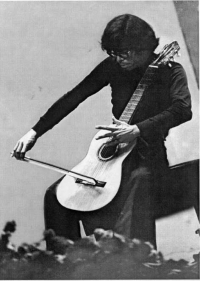
Juan Leovigildo Brouwer Mezquida (born March 1, 1939) in Havana, is a Cuban composer, conductor and guitarist .
As a child, Brouwer received his initial stimulus from his father, a physician, who was an aficionado of Villa-Lobos, Tárrega and Granados. He initiated his son encouraging him to play these composers' works, mostly by ear.
Young Brouwer received his first formal guitar instruction from the noted Cuban guitarist and pedagogue Isaac Nicola, in turn a disciple of Emilio Pujol. Afterwards, Brouwer went to the United States to study music at the Hartt College of Music of the University of Hartford, and later at the Juilliard School, where he studied under Vincent Persichetti and took composition classes with Stefan Wolpe.
Brouwer's early works show the influence of Cuban folk music, but during the 1960s and 70s, he became interested in the music of modernist composers such as Luigi Nono and Iannis Xenakis, using indeterminacy in works such as Sonograma I. Other works from this period include the guitar pieces Canticum (1968), La espiral eterna (1971), Parábola (1973) and Tarantos (1974). More recently, Brouwer's works have started leaning towards tonality and modality. The solo guitar works El Decamerón Negro (1981) the Sonata (1990; for Julian Bream) and Paisaje cubano con campanas (1986) exemplify this tendency.
Among his works are a large number of solo guitar pieces, several guitar concertos and over forty film scores. Leo Brouwer is involved in the "Concurso y Festival Internacional de Guitarra de la Habana" (International Guitar Festival of the Havana). He travels often to attend guitar festivals throughout the world, and especially to other Latin American countries.
As a child, Brouwer received his initial stimulus from his father, a physician, who was an aficionado of Villa-Lobos, Tárrega and Granados. He initiated his son encouraging him to play these composers' works, mostly by ear.
Young Brouwer received his first formal guitar instruction from the noted Cuban guitarist and pedagogue Isaac Nicola, in turn a disciple of Emilio Pujol. Afterwards, Brouwer went to the United States to study music at the Hartt College of Music of the University of Hartford, and later at the Juilliard School, where he studied under Vincent Persichetti and took composition classes with Stefan Wolpe.
Brouwer's early works show the influence of Cuban folk music, but during the 1960s and 70s, he became interested in the music of modernist composers such as Luigi Nono and Iannis Xenakis, using indeterminacy in works such as Sonograma I. Other works from this period include the guitar pieces Canticum (1968), La espiral eterna (1971), Parábola (1973) and Tarantos (1974). More recently, Brouwer's works have started leaning towards tonality and modality. The solo guitar works El Decamerón Negro (1981) the Sonata (1990; for Julian Bream) and Paisaje cubano con campanas (1986) exemplify this tendency.
Among his works are a large number of solo guitar pieces, several guitar concertos and over forty film scores. Leo Brouwer is involved in the "Concurso y Festival Internacional de Guitarra de la Habana" (International Guitar Festival of the Havana). He travels often to attend guitar festivals throughout the world, and especially to other Latin American countries.
Little Shop of Horrors
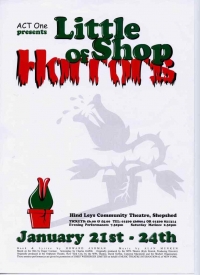
Little Shop of Horrors is a rock musical by composer Alan Menken and writer Howard Ashman, about a nerdy florist shop worker who raises a plant that feeds on human blood. The musical was based on the low-budget 1960 black comedy The Little Shop of Horrors, directed by Roger Corman. The music, composed by Menken in the style of 1960s rock and roll, doo-wop and early Motown, included several show-stoppers including "Skid Row (Downtown)", "Somewhere That's Green", and "Suddenly, Seymour", as well as the title song.
In addition to the original long-running 1982 off-Broadway production and subsequent Broadway production, the musical has been performed all over the world, including in Buenos Aires, Sydney, Vienna, São Paulo, Toronto, Copenhagen, Helsinki, Paris, Berlin, Athens, Budapest, Reykjavík, Jerusalem, Rome, Tokyo, Zurich, Athens, Barcelona, Cologne, Mexico City, Auckland, Oslo, Singapore City, Johannesburg, Madrid, Stockholm, Seinajoki, Akureyri, Vaasa, and London. The musical was also performed in Bogota, Colombia in July 2008. Because of its small cast and relatively simple orchestrations, it has become popular with community theatre and high school groups. The musical was also made into a 1986 film of the same name, directed by Frank Oz.
In addition to the original long-running 1982 off-Broadway production and subsequent Broadway production, the musical has been performed all over the world, including in Buenos Aires, Sydney, Vienna, São Paulo, Toronto, Copenhagen, Helsinki, Paris, Berlin, Athens, Budapest, Reykjavík, Jerusalem, Rome, Tokyo, Zurich, Athens, Barcelona, Cologne, Mexico City, Auckland, Oslo, Singapore City, Johannesburg, Madrid, Stockholm, Seinajoki, Akureyri, Vaasa, and London. The musical was also performed in Bogota, Colombia in July 2008. Because of its small cast and relatively simple orchestrations, it has become popular with community theatre and high school groups. The musical was also made into a 1986 film of the same name, directed by Frank Oz.
Yanni
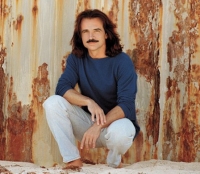
Yanni (born Yiannis Hrysomallis (pronounced Chrysomallis), (Greek: Γιάννης Χρυσομάλλης, classical transcription Giannis Chrysomallis), on November 14, 1954 in Kalamata, Greece) is a self-taught pianist, keyboardist, and composer. After receiving a B.A. in psychology, he would instead seek a life in music though he had no formal training and could not read a note.
He earned Grammy nominations for his 1992 album, Dare to Dream, and the 1993 follow-up, In My Time. His breakthrough success came with the 1994 release of Yanni Live at the Acropolis, deemed to be the second best-selling music video of all time, (behind Michael Jackson's video for Thriller with nine million units). Yanni has since performed live in concert before in excess of two million people in more than 20 countries around the world. He has accumulated more than 35 platinum and gold albums globally, with sales totaling over 20 million copies. Yanni is considered to be one of the top fundraisers of all time for public television. His compositions have been included in all Olympic Games television broadcasts since 1988, and his music has been used extensively in television and televised sporting events. His music is frequently described as "new age", though he prefers the term "contemporary instrumental". The regents of the University of Minnesota conferred upon Yanni the honorary degree of Doctor of Humane Letters.
He earned Grammy nominations for his 1992 album, Dare to Dream, and the 1993 follow-up, In My Time. His breakthrough success came with the 1994 release of Yanni Live at the Acropolis, deemed to be the second best-selling music video of all time, (behind Michael Jackson's video for Thriller with nine million units). Yanni has since performed live in concert before in excess of two million people in more than 20 countries around the world. He has accumulated more than 35 platinum and gold albums globally, with sales totaling over 20 million copies. Yanni is considered to be one of the top fundraisers of all time for public television. His compositions have been included in all Olympic Games television broadcasts since 1988, and his music has been used extensively in television and televised sporting events. His music is frequently described as "new age", though he prefers the term "contemporary instrumental". The regents of the University of Minnesota conferred upon Yanni the honorary degree of Doctor of Humane Letters.
Marc Shaiman
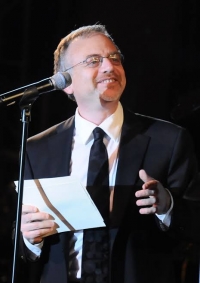
Marc Shaiman is an American composer and lyricist for films, television, and theatre, best known for his collaborations with lyricist and director Scott Wittman. He wrote the music and co-wrote the lyrics for the Broadway musical version of the John Waters film Hairspray.
Jesus Christ Superstar
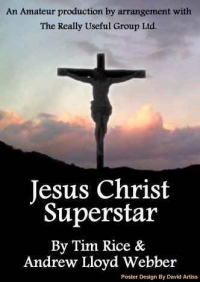
Jesus Christ Superstar is a rock opera by Tim Rice and Andrew Lloyd Webber. Released as a double-album in 1970, it highlights the political and interpersonal struggles of Judas Iscariot and Jesus. The action largely follows the canonical gospels' accounts of the last weeks of Jesus' life, beginning with Jesus and his followers arriving in Jerusalem and ending with the Crucifixion. Twentieth-century attitude and sensibilities as well as contemporary slang pervade the lyrics, and ironic allusions to modern life are scattered throughout the political depiction of the events. Stage and film productions accordingly feature many intentional anachronisms.
A large part of the plot focuses on the character of Judas who is depicted as a confused, tragic figure who is not satisfied with what he views as Jesus's lack of planning, and alarmed by the relatively recent claims of his divinity.
A large part of the plot focuses on the character of Judas who is depicted as a confused, tragic figure who is not satisfied with what he views as Jesus's lack of planning, and alarmed by the relatively recent claims of his divinity.
Joni Mitchell
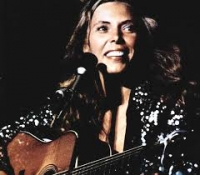
Joni Mitchell was born on November 7, 1943, in Fort Macleod, Canada. In 1968, she recorded her first, self-titled album. Other highly successful albums followed. Mitchell won her first Grammy Award (best folk performance) for her 1969 album, Clouds. She has won seven more Grammy Awards since then, in several different categories, including traditional pop, pop music and lifetime achievement.
The Beatles

The Beatles were a pop and rock group from Liverpool, England formed in 1960. Primarily consisting of John Lennon (rhythm guitar, vocals), Paul McCartney (bass guitar, vocals), George Harrison (lead guitar, vocals) and Ringo Starr (drums, vocals) throughout their career, The Beatles are recognised for leading the mid-1960s musical "British Invasion" into the United States. Although their initial musical style was rooted in 1950s rock and roll and homegrown skiffle, the group explored genres ranging from Tin Pan Alley to psychedelic rock. Their clothes, styles, and statements made them trend-setters, while their growing social awareness saw their influence extend into the social and cultural revolutions of the 1960s. After the band broke up in 1970, all four members embarked upon solo careers.
The Beatles are one of the most commercially successful and critically acclaimed bands in the history of popular music, selling over a billion records internationally. In the United Kingdom, The Beatles released more than 40 different singles, albums, and EPs that reached number one, earning more number one albums (15) than any other group in UK chart history. This commercial success was repeated in many other countries; their record company, EMI, estimated that by 1985 they had sold over one billion records worldwide. According to the Recording Industry Association of America, The Beatles have sold more albums in the United States than any other band. In 2004, Rolling Stone magazine ranked The Beatles number one on its list of 100 Greatest Artists of All Time. According to that same magazine, The Beatles' innovative music and cultural impact helped define the 1960s, and their influence on pop culture is still evident today. In 2008, Billboard magazine released a list of top-selling Hot 100 artists to celebrate the chart's fiftieth anniversary; The Beatles reached #1 again.
The Beatles are one of the most commercially successful and critically acclaimed bands in the history of popular music, selling over a billion records internationally. In the United Kingdom, The Beatles released more than 40 different singles, albums, and EPs that reached number one, earning more number one albums (15) than any other group in UK chart history. This commercial success was repeated in many other countries; their record company, EMI, estimated that by 1985 they had sold over one billion records worldwide. According to the Recording Industry Association of America, The Beatles have sold more albums in the United States than any other band. In 2004, Rolling Stone magazine ranked The Beatles number one on its list of 100 Greatest Artists of All Time. According to that same magazine, The Beatles' innovative music and cultural impact helped define the 1960s, and their influence on pop culture is still evident today. In 2008, Billboard magazine released a list of top-selling Hot 100 artists to celebrate the chart's fiftieth anniversary; The Beatles reached #1 again.
John Dowland
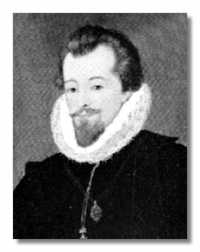
John Dowland (1563 – buried 20 February 1626) was an English composer, singer, and lutenist. He is best known today for his melancholy songs such as "Come, heavy sleep" (the basis for Benjamin Britten's Nocturnal), "Come again", "Flow my tears", "I saw my Lady weepe" and "In darkness let me dwell", but his instrumental music has undergone a major revival, and has been a source of repertoire for classical guitarists during the twentieth century.
Muse

Muse are a British rock band formed in Teignmouth, Devon, United Kingdom in 1994 under the alias of Rocket Baby Dolls. The band comprises Matthew Bellamy (vocals, guitar and piano), Christopher Wolstenholme (bass guitar and backing vocals) and Dominic Howard (drums and percussion). Muse's style can be considered as a mixture of many musical genres, most notably alternative rock, classical music and electronica. Muse are known best for their energetic and visually dazzling live performances and on June 16th & 17th, 2007 became the first band to sell out the newly built Wembley Stadium in London. Muse have released four studio albums with their first, Showbiz, released in 1999, followed by Origin of Symmetry in 2001 and Absolution in 2003. The most recent, Black Holes & Revelations (2006), was also the most critically acclaimed, garnering the band a Mercury Prize nomination and a third place finish in the NME Albums of the Year list for 2006. Muse have won various awards throughout their career including 5 MTV Europe Music Awards, 5 Q Awards, 4 NME Awards and 2 Brit awards.
The Incredibles
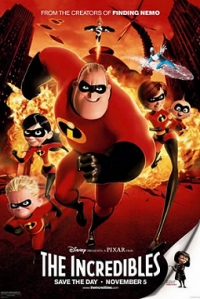
The Incredibles is a 2004 computer-animated feature film produced by Pixar Animation Studios for Walt Disney Pictures, centering around a family of superheroes. It was written and directed by Brad Bird, a former director of The Simpsons previously best known for directing the 1999 animated movie The Iron Giant. The Incredibles was originally developed as a traditionally-animated movie for Warner Bros., but after Warner shut down its animation division, Bird moved to Pixar and took the story with him.
The Incredibles is Pixar's sixth feature film. It was presented by Walt Disney Pictures and released by Buena Vista Distribution in North America on November 5, 2004, and in the United Kingdom and the Republic of Ireland on November 26 of the same year and in Japan, February 2, 2005. It is the first Pixar full-length film to feature an entirely human cast of characters. It was released in a two-disc DVD in the U.S. on March 15, 2005. According to the Internet Movie Database, it was the highest-selling DVD of 2005, with 17.18 million copies sold. It had its basic cable première on ABC Family as part of The 25 Days of Christmas in December 2007, and its second cable showing on Disney Channel as part of the No Ordinary Friday on February 1, 2008.
The Incredibles is the original soundtrack album, on the Disney label, of the 2004 Academy Award-winning animated feature The Incredibles. The album is completely orchestral and was composed by Michael Giacchino.
The Incredibles is Pixar's sixth feature film. It was presented by Walt Disney Pictures and released by Buena Vista Distribution in North America on November 5, 2004, and in the United Kingdom and the Republic of Ireland on November 26 of the same year and in Japan, February 2, 2005. It is the first Pixar full-length film to feature an entirely human cast of characters. It was released in a two-disc DVD in the U.S. on March 15, 2005. According to the Internet Movie Database, it was the highest-selling DVD of 2005, with 17.18 million copies sold. It had its basic cable première on ABC Family as part of The 25 Days of Christmas in December 2007, and its second cable showing on Disney Channel as part of the No Ordinary Friday on February 1, 2008.
The Incredibles is the original soundtrack album, on the Disney label, of the 2004 Academy Award-winning animated feature The Incredibles. The album is completely orchestral and was composed by Michael Giacchino.
Jason Robert Brown
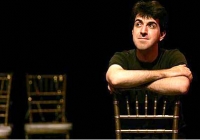
Jason Robert Brown (born 1970 in Ossining, New York) is an American musical theater composer and lyricist. Often cited as one of the "New School" of theatrical composers (a list that includes Michael John LaChiusa, Adam Guettel, Andrew Lippa, and Jeanine Tesori, among others), Brown's music sensibility fuses pop-rock stylings with theatrical lyrics. An accomplished pianist, Brown has often served as music director, conductor, orchestrator and pianist for his own productions.
Alicia Keys

Alicia J. Augello-Cook (born January 25, 1981), and has won numerous awards, including eleven Grammy Awards, seventeen Billboard Music Awards, three American Music Awards.
Her debut album Songs in A Minor was a worldwide success, selling nearly 11 millions albums, and received five Grammy Awards in 2002, with Alicia winning Best New Artist and also Song of the Year for "Fallin'".
Her debut album Songs in A Minor was a worldwide success, selling nearly 11 millions albums, and received five Grammy Awards in 2002, with Alicia winning Best New Artist and also Song of the Year for "Fallin'".
Hillsong United

The Hillsong United band is an Australian rock and worship band, a part of Hillsong Church's youth ministry Hillsong United. Their music is a contemporary style of praise and worship tempered with mainstream rock.
Current members of the Hillsong United band include Jonathon Douglass (J.D.), Jadwin "Jad" Gillies, Holly Watson, Annie Garratt, Bec Gillies, and Michelle Fragar, daughter of Russell Fragar. Michael Guy Chislett plays guitar and Matthew Tennikoff plays bass guitar. Former original drummer Luke Munns made a transition from the drums to front the rock/indie band LUKAS. Popular New Zealand artist Brooke Fraser recently joined the band when she joined the church, first appearing on United We Stand.
The annual Hillsong United CD/DVD was recorded over many years during their October youth conference Encounterfest, with the album released in the first quarter of the following year. The 2007 album All of the Above was the first album to be fully studio recorded, containing videos of songs on the DVD. The band has toured in a number of countries, leading worship to thousands in North and South America, Europe and Asia.
Current members of the Hillsong United band include Jonathon Douglass (J.D.), Jadwin "Jad" Gillies, Holly Watson, Annie Garratt, Bec Gillies, and Michelle Fragar, daughter of Russell Fragar. Michael Guy Chislett plays guitar and Matthew Tennikoff plays bass guitar. Former original drummer Luke Munns made a transition from the drums to front the rock/indie band LUKAS. Popular New Zealand artist Brooke Fraser recently joined the band when she joined the church, first appearing on United We Stand.
The annual Hillsong United CD/DVD was recorded over many years during their October youth conference Encounterfest, with the album released in the first quarter of the following year. The 2007 album All of the Above was the first album to be fully studio recorded, containing videos of songs on the DVD. The band has toured in a number of countries, leading worship to thousands in North and South America, Europe and Asia.
Czerny
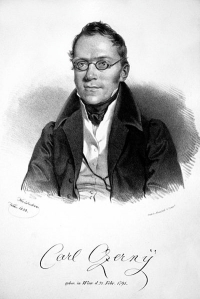
Carl Czerny (sometimes Karl; February 21, 1791 – July 15, 1857) was an Austrian pianist, composer and teacher. He is best remembered today for his books of études for the piano. Czerny knew and was influenced by the well-known pianists Muzio Clementi and Johann Nepomuk Hummel.
Clint Mansell
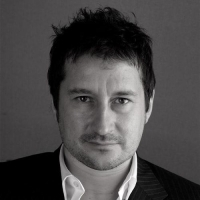
Clint Mansell (born Clinton Darryl Mansell, 7 January 1963, Coventry, England) is a musician, composer, and former lead singer and guitarist of Pop Will Eat Itself.
Mansell was the lead singer and guitarist of the British band Pop Will Eat Itself. After the disbanding of PWEI in 1996, Mansell broke into the world of film scoring when his friend, director Darren Aronofsky, hired him to score his debut film, π.
Mansell was the lead singer and guitarist of the British band Pop Will Eat Itself. After the disbanding of PWEI in 1996, Mansell broke into the world of film scoring when his friend, director Darren Aronofsky, hired him to score his debut film, π.
Carlos Gardel

Carlos Gardel (11 December 1890 – 24 June 1935) was a singer, songwriter and actor, and is perhaps the most prominent figure in the history of tango. The unerring musicality of Gardel's baritone voice and the dramatic phrasing of his lyrics made miniature masterpieces of his hundreds of three-minute tango recordings. Together with lyricist and long-time collaborator Alfredo Le Pera, Gardel wrote several classic tangos, most notably "Mi Buenos Aires querido", "Por una cabeza" and "El día que me quieras".
Gardel died in an airplane crash at the height of his career, becoming an archetypal tragic hero mourned throughout Latin America. For many, Gardel embodies the soul of the tango style. He is commonly referred to as "Carlitos", "El Zorzal" (The Song Thrush), "The King of Tango", "El Mago" (The Magician) and "El Mudo" (The Mute).
Gardel died in an airplane crash at the height of his career, becoming an archetypal tragic hero mourned throughout Latin America. For many, Gardel embodies the soul of the tango style. He is commonly referred to as "Carlitos", "El Zorzal" (The Song Thrush), "The King of Tango", "El Mago" (The Magician) and "El Mudo" (The Mute).
Georges Bizet

Georges Bizet (25 October 1838 – 3 June 1875) was a French composer and pianist of the Romantic era. He is best known for the opera Carmen.
Bizet was born at 26 rue de la Tour d'Auvergne in the 9th arrondissement of Paris in 1838. He was registered with the legal name Alexandre César Léopold Bizet, but he was baptised on 16 March 1840 with the first name Georges, and he was always known thereafter as Georges Bizet. His father Adolphe Armand Bizet (1810-86) was an amateur singer and composer, and his mother, Aimée Léopoldine Joséphine née Delsarte (1814-61), was the sister of the famous singing teacher François Delsarte.
He entered the Paris Conservatory of Music on 9 October 1848, a fortnight before his tenth birthday. His teachers there were Pierre Zimmermann (fugue and counterpoint; often assisted by his son-in-law Charles Gounod), Antoine François Marmontel (piano), François Benoist (organ) and, on Zimmermann's death, Fromental Halévy, whose daughter he himself later married. He won first prizes for organ and fugue in 1855 and completed his earliest compositions.
His first symphony, the Symphony in C, was written in November 1855, when he was seventeen, evidently as a student assignment. It was unknown to the world until 1933, when it was discovered in the archives of the Paris Conservatory library. Upon its first performance in 1935, it was immediately hailed as a junior masterwork and a welcome addition to the early Romantic period repertoire. The symphony bears a stylistic resemblance to the first symphony of Gounod, first played earlier in the same year, and which Bizet had arranged for two pianos although present-day listeners may discern a similarity to music of Franz Schubert, whose work was little known in France at the time the symphony was written.
In 1857, a setting of the one-act operetta Le docteur Miracle won him a share in a prize offered by Jacques Offenbach. He also won the music composition scholarship of the Prix de Rome, the conditions of which required him to study in Rome for three years. There, his talent developed as he wrote such works as the opera buffa Don Procopio (1858-59). There he also composed his only major sacred work, Te Deum (1858), which he submitted to the Prix Rodrigues competition, a contest for Prix de Rome winners only. Bizet failed to win the Prix Rodrigues, and the Te Deum score remained unpublished until 1971. He made two attempts to write another symphony in 1859, but destroyed the manuscripts in December of that year. Apart from this period in Rome, Bizet lived in the Paris area all his life.
Shortly after leaving Rome in July 1860, but while still touring in Italy, he had the idea of writing a symphony in which each of the four movements would be a musical evocation of a different Italian city – Rome, Venice, Florence and Naples. On hearing of his mother's serious illness he cut short his Italian travels and returned to Paris in September 1860; she died a year later. The Scherzo of the symphony was completed by November 1861, but it was not until 1866 that the first version of the whole symphony was written. He subjected it to a number of revisions through to 1871, but died before ever producing what he considered the definitive version. For this reason, the work is sometimes described as "unfinished", but this is an inaccurate description as it was fully scored. It was published in 1880 as the Roma Symphony.
Bizet was born at 26 rue de la Tour d'Auvergne in the 9th arrondissement of Paris in 1838. He was registered with the legal name Alexandre César Léopold Bizet, but he was baptised on 16 March 1840 with the first name Georges, and he was always known thereafter as Georges Bizet. His father Adolphe Armand Bizet (1810-86) was an amateur singer and composer, and his mother, Aimée Léopoldine Joséphine née Delsarte (1814-61), was the sister of the famous singing teacher François Delsarte.
He entered the Paris Conservatory of Music on 9 October 1848, a fortnight before his tenth birthday. His teachers there were Pierre Zimmermann (fugue and counterpoint; often assisted by his son-in-law Charles Gounod), Antoine François Marmontel (piano), François Benoist (organ) and, on Zimmermann's death, Fromental Halévy, whose daughter he himself later married. He won first prizes for organ and fugue in 1855 and completed his earliest compositions.
His first symphony, the Symphony in C, was written in November 1855, when he was seventeen, evidently as a student assignment. It was unknown to the world until 1933, when it was discovered in the archives of the Paris Conservatory library. Upon its first performance in 1935, it was immediately hailed as a junior masterwork and a welcome addition to the early Romantic period repertoire. The symphony bears a stylistic resemblance to the first symphony of Gounod, first played earlier in the same year, and which Bizet had arranged for two pianos although present-day listeners may discern a similarity to music of Franz Schubert, whose work was little known in France at the time the symphony was written.
In 1857, a setting of the one-act operetta Le docteur Miracle won him a share in a prize offered by Jacques Offenbach. He also won the music composition scholarship of the Prix de Rome, the conditions of which required him to study in Rome for three years. There, his talent developed as he wrote such works as the opera buffa Don Procopio (1858-59). There he also composed his only major sacred work, Te Deum (1858), which he submitted to the Prix Rodrigues competition, a contest for Prix de Rome winners only. Bizet failed to win the Prix Rodrigues, and the Te Deum score remained unpublished until 1971. He made two attempts to write another symphony in 1859, but destroyed the manuscripts in December of that year. Apart from this period in Rome, Bizet lived in the Paris area all his life.
Shortly after leaving Rome in July 1860, but while still touring in Italy, he had the idea of writing a symphony in which each of the four movements would be a musical evocation of a different Italian city – Rome, Venice, Florence and Naples. On hearing of his mother's serious illness he cut short his Italian travels and returned to Paris in September 1860; she died a year later. The Scherzo of the symphony was completed by November 1861, but it was not until 1866 that the first version of the whole symphony was written. He subjected it to a number of revisions through to 1871, but died before ever producing what he considered the definitive version. For this reason, the work is sometimes described as "unfinished", but this is an inaccurate description as it was fully scored. It was published in 1880 as the Roma Symphony.
Hans Zimmer

Hans Florian Zimmer (born September 12, 1957) is a German film score composer and music producer. He has composed music for over 100 films, including Hollywood blockbusters such as the Pirates of the Caribbean series, Gladiator, The Lion King, The Da Vinci Code and The Dark Knight.
Zimmer spent the early part of his career in the United Kingdom before moving to the United States. He is the head of the film music division at DreamWorks studios, and works with other composers through the company which he founded, Remote Control Productions. His work is notable for integrating electronic music sounds with traditional orchestral arrangements.
Zimmer spent the early part of his career in the United Kingdom before moving to the United States. He is the head of the film music division at DreamWorks studios, and works with other composers through the company which he founded, Remote Control Productions. His work is notable for integrating electronic music sounds with traditional orchestral arrangements.
Johann Strauss

Johann Strauss I (March 14, 1804 – September 25, 1849; German: Johann Baptist Strauß, Johann Strauss (Vater); also Johann Baptist Strauss, Johann Strauss, Sr., the Elder, the Father), born in Vienna, was an Austrian Romantic composer famous for his waltzes, and for popularizing them alongside Joseph Lanner, thereby setting the foundations for his sons to carry on his musical dynasty. His most famous piece is probably the Radetzky March (named after Joseph Radetzky von Radetz), while his most famous waltz is probably the Lorelei Rheinklänge, Op. 154.
ABBA

ABBA was a Swedish Eurovision Song Contest-winning pop music group active between 1972 and 1982. Benny Andersson, Björn Ulvaeus, Anni-Frid Lyngstad (Frida), Agnetha Fältskog are in ABBA. They topped the charts worldwide from the mid-1970s to the early 1980s. The name "ABBA" is an acronym formed from the first letters of each of the group member's given name (Agnetha, Björn, Benny, Anni-Frid).
ABBA gained immense international popularity employing catchy song hooks, simple lyrics, and a Wall of Sound achieved by overdubbing the female singers' voices in multiple harmonies. As their popularity grew, they were sought-after to tour Europe, Australia, and North America, drawing crowds of near-hysterical fans ("ABBAholics"), notably in Australia. Touring became a contentious issue, being particularly unpopular with Agnetha, but they continued to release studio albums to great commercial success. At the height of their popularity, however, both marriages of the band members (Benny with Frida, and Björn with Agnetha) failed, and the relationship changes were reflected in their music, as they produced more thoughtful lyrics with different compositions.
They remain a fixture of radio playlists and are one of the world's best selling bands, having sold around 400 million records world wide; The music of ABBA has been re-arranged into the successful musical Mamma Mia! that has toured worldwide and a movie version was released in July 2008. All four of the former members of ABBA were present at the Stockholm premieres of both the musical (2005) and the film (2008). The film première took place at the Benny Andersson-owned Rival theatre at Mariatorget, Stockholm on 4 July 2008.
ABBA gained immense international popularity employing catchy song hooks, simple lyrics, and a Wall of Sound achieved by overdubbing the female singers' voices in multiple harmonies. As their popularity grew, they were sought-after to tour Europe, Australia, and North America, drawing crowds of near-hysterical fans ("ABBAholics"), notably in Australia. Touring became a contentious issue, being particularly unpopular with Agnetha, but they continued to release studio albums to great commercial success. At the height of their popularity, however, both marriages of the band members (Benny with Frida, and Björn with Agnetha) failed, and the relationship changes were reflected in their music, as they produced more thoughtful lyrics with different compositions.
They remain a fixture of radio playlists and are one of the world's best selling bands, having sold around 400 million records world wide; The music of ABBA has been re-arranged into the successful musical Mamma Mia! that has toured worldwide and a movie version was released in July 2008. All four of the former members of ABBA were present at the Stockholm premieres of both the musical (2005) and the film (2008). The film première took place at the Benny Andersson-owned Rival theatre at Mariatorget, Stockholm on 4 July 2008.
David Hallyday
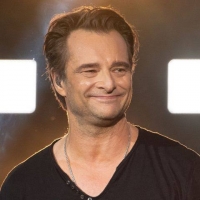
David Hallyday (born David Michael Benjamin Smet; 14 August 1966) is a French singer, songwriter and amateur sports car racer,Hallyday is most known for writing music for others, including a collaboration with his father on the 1999 album Sang pour sang.
He appeared in the teenage comedy He's My Girl (1987), also performing its title theme song. "He's My Girl" reached #79 on the U.S. Billboard Hot 100 and #72 on Cash Box.
He appeared in the teenage comedy He's My Girl (1987), also performing its title theme song. "He's My Girl" reached #79 on the U.S. Billboard Hot 100 and #72 on Cash Box.
Chicago
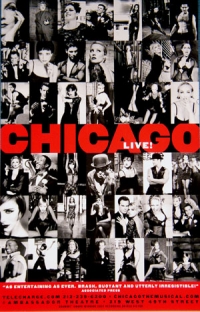
Chicago is a Kander and Ebb musical set in prohibition era Chicago. The book is by Ebb and Bob Fosse. The story is a satire on corruption in the administration of criminal justice, and the concept of the "celebrity criminal." The musical is based on a 1926 play of the same name by reporter Maurine Dallas Watkins about actual criminals and crimes she had reported on.
The original 1975 Broadway production ran for a total of 936 performances. Bob Fosse choreographed the original production, and his style is strongly identified with the show. Chicago's 1996 Broadway revival holds the record for the longest-running musical revival on Broadway (not counting the revue Oh! Calcutta!) and, as of March 2, 2008, it has played for more than 4,684 performances. The revival was followed by a production on London's West End and several tours and international productions. An Academy Award-winning film version of the musical was released in 2002.
The original 1975 Broadway production ran for a total of 936 performances. Bob Fosse choreographed the original production, and his style is strongly identified with the show. Chicago's 1996 Broadway revival holds the record for the longest-running musical revival on Broadway (not counting the revue Oh! Calcutta!) and, as of March 2, 2008, it has played for more than 4,684 performances. The revival was followed by a production on London's West End and several tours and international productions. An Academy Award-winning film version of the musical was released in 2002.
Caetano Veloso
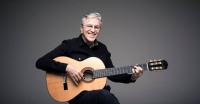
Caetano Emanuel Viana Teles Veloso, or known as Caetano Veloso, is a Brazilian composer, singer, guitarist, writer and political activist. He was recognized as one of the best songwriters of the century and considered Bob Dylan of Brazil.
 Sheet Music Max is a site for those who wants to access popular sheet music easily,
letting them download the sheet music for free for trial purposes.
It's completely free to download and try the listed sheet music, but you have to delete the files after 24 hours of trial.
Don't forget, if you like the piece of music you have just learned playing,
treat the artist with respect, and go buy the original sheet music.
Sheet Music Max is a site for those who wants to access popular sheet music easily,
letting them download the sheet music for free for trial purposes.
It's completely free to download and try the listed sheet music, but you have to delete the files after 24 hours of trial.
Don't forget, if you like the piece of music you have just learned playing,
treat the artist with respect, and go buy the original sheet music.